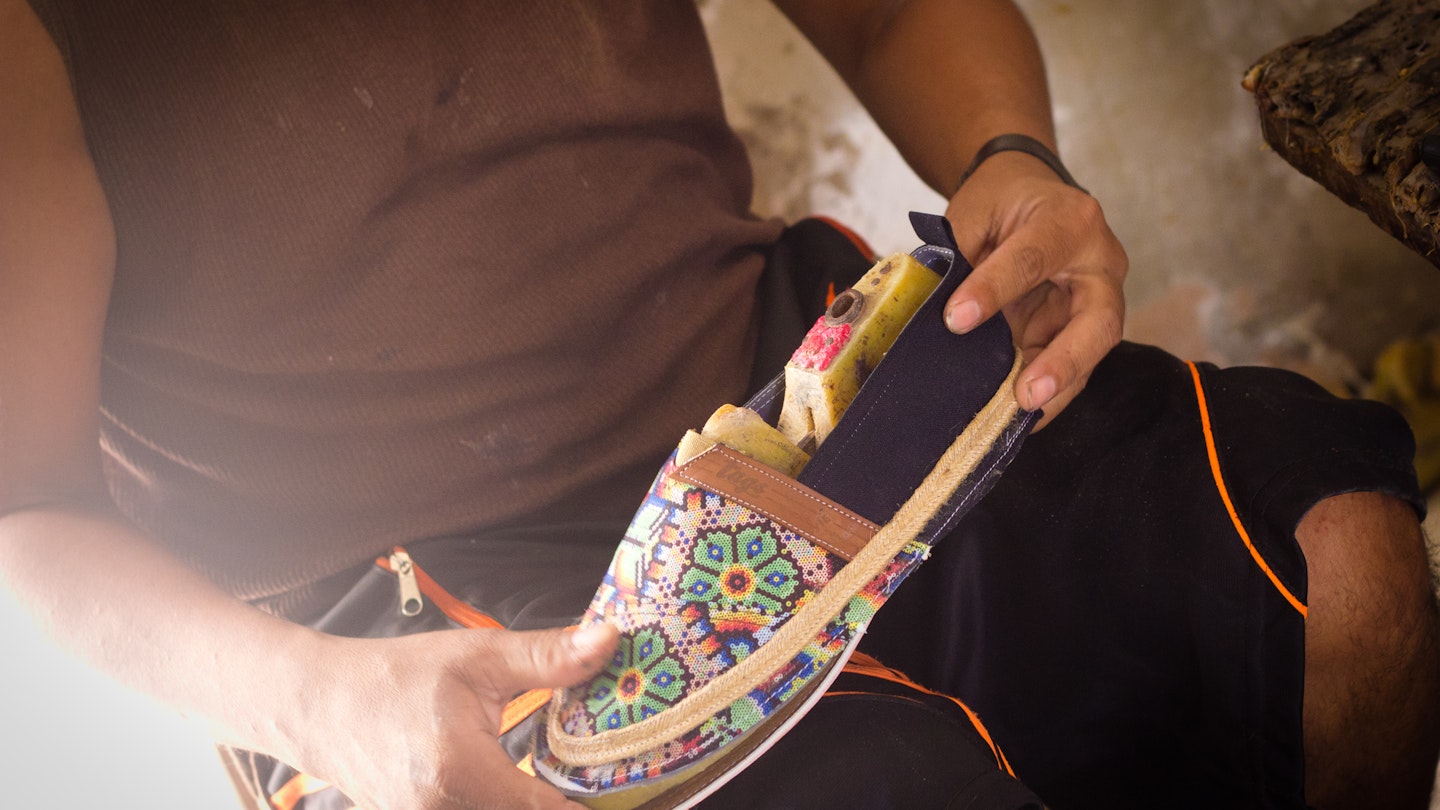Traveling throughout the Yucatán Peninsula is a feast for the eyes. Colorful Mexican handicrafts and folk artwork inspired by ancient Mayan motifs are showcased on virtually every corner. The Yucatán Peninsula is made up of three states – Quintana Roo, Yucatán, and Campeche – each renowned for specialty goods. Many artisanal products are created by indigenous people who are fighting to preserve their cultural heritage by sharing their art with the world.
Educate Yourself
Many artisanal products are created by indigenous people who aim to preserve their cultural heritage. However, unfortunate instances arise when major fashion brands and fast-fashion retailers exploit indigenous designs without proper compensation. This summer, the cultural minister of Mexico, Alejandra Frausto, accused Venezuelan designer Carolina Herrera of cultural appropriation for using indigenous Mexican embroidery patterns in her resort collection.
The intent may not have been malicious; nevertheless, the consequences are significant. By borrowing design elements from indigenous communities, brands not only appropriate their designs but also take away potential earnings for these communities. Brands should seek permission to use these designs and offer payment or employment opportunities in return.
Top Tip: Always learn the origin of an item you’re interested in purchasing; otherwise, it can be challenging to determine whether you are unknowingly contributing to cultural exploitation.
Market Shopping
Most major towns host weekly outdoor markets where local artisans sell their crafts directly to tourists. This is one of the most meaningful ways to shop, offering you a chance to converse with artists about their medium, inspiration, and the historical significance of their work. It’s acceptable to inquire if vendors made the goods themselves, and if not, ask how the goods are sourced to discern whether you are contributing to local artists or major corporations.
Top Tip: Do not haggle with artisans over handmade pieces; if the price exceeds your budget, politely decline. Artists deserve to set fair prices for their work.

Boutique Shopping
At boutiques, it’s essential to inquire about their business ethics, including how they support their community and ensure fair wages for artisans. Genuine enterprises focused on social responsibility will be transparent about their sourcing and operational practices.
Top Tip: Avoid mass chains that may source items cheaply. Instead, seek artisan-made clothing, accessories, and homewares directly from artists or retailers who support fair trade practices benefiting local brands.

Indigenous Communities
Many sustainable souvenirs are unique, as most artisan goods are handmade and cannot be perfectly replicated. Engage with local Mayan community cooperatives that create embroidery, woven goods, crafts, and more. Explore the Yucatán’s smaller villages for unique crafting opportunities. Visit Halachó for multi-colored woven coil basketry, or journey to Bécal for a world-famous Jipi hat made from the jipijapa palm. In Izamal, find colorful items such as tortilla warmers and coasters crafted from henequen fibers—often referred to as ‘Green Gold’ due to its role in the wealth of the region.
Top Tip: Authentic handicrafts are typically not inexpensive. If you encounter items priced at just a dollar or two, it is likely that they are not made sustainably. Keep in mind that a laborer cannot be fairly compensated if items are sold at such low prices.

Where to Shop in Mérida
As the capital of the Yucatán state, the cosmopolitan Mérida offers shopping choices for all budgets and tastes. Before heading out, be sure to have a few traditional sabucan shopping bags on hand to reduce plastic use.
Yucatecan Specialties
-
Colectivo Múul Meyaj: An array of Yucatecan hand-made home goods and accessories, empowering Mayan communities to recognize the value of their crafts.
-
Casa Bonita: Exclusively offers Yucatecan designs, including clothing, jewelry, and ethical beauty items. Tags Alpargatas: Features espadrilles handmade by a family of shoemakers from Hunucmá.
-
Casa de las Artesanias: A government-operated fair-trade store with fixed-priced items.
-
Cielo Hamacas: A B Corp and Fair Trade Federation member selling locally woven hammocks, where 90% of the weavers are women from Mayan communities working from home as part of the Sustainable Holistic Empowerment Network.

High-End Mérida
-
Casa T’hō boasts a collection of curated upscale boutiques.
-
Casa Lima: Offers perfumes, soaps, palm bags, and vegan candles, including items from Angela Damman, which features handbags and home decor crafted from local plant fibers.
-
Kukul Boutik provides artisan-made clothing, such as bright huipil dresses embroidered with flowers and traditional guayabera, known as the Camisa de Yucatán.
Zero-Waste Mérida
Seek out items by AlternativaCero, founded by Ingrith León Cabrera, who organizes the monthly Cero Basura Yucatán market. The collection includes personal care items like shampoo bars, toothpaste tablets, and body scrubs made from local raw materials. These items can be found at Casa Bonita, Colectivo Muul Meyaj, and Monique’s Bakery. Monique was instrumental in launching the Slow Food Market movement in Mérida, which features stalls offering scratch-made food and local products focusing on ethical living.

Where to Shop in Tulum
-
Caravana is the go-to place in Tulum for high-quality handmade organic cotton wrap dresses and ponchos inspired by Mayan culture, crafted by fairly paid artisans.
-
The female-owned Daria Tulum offers a curated selection of items focused on local Mexican and sustainable female designers, including Beatrice Valenzuela ready-to-wear and sandals.
-
For homeware and jewelry, visit the solar-powered Mr. Blackbird store.
-
Carla Fernández features products crafted by Mexican artists, including hand-dyed tops and woven ponchos.
-
For zero-waste items, check out Co.ConAmor or La Minimal. Vegan skincare packaged in eco-friendly bottles is available at Casa Selva Botanicals.




